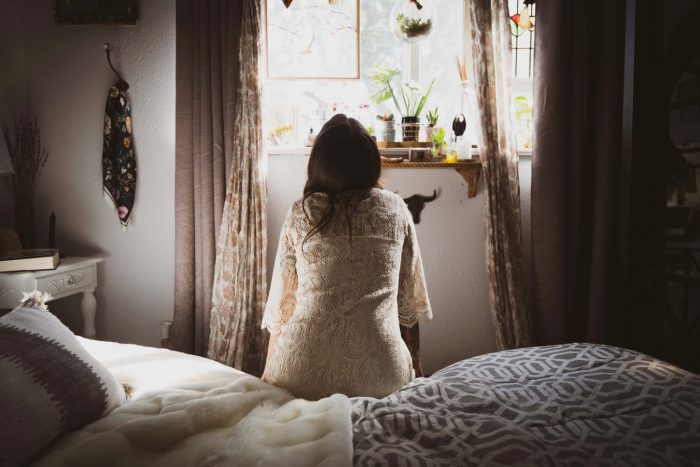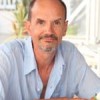*Elephant is not your doctor or hospital. Our lawyers would say “this website is not designed to, and should not be construed to provide medical advice, professional diagnosis, opinion, or treatment to you or any other individual, and is not intended as a substitute for medical or professional care and treatment. Always consult a health professional before trying out new home therapies or changing your diet.” But we can’t afford lawyers, and you knew all that. ~ Ed.
~
You probably heard from your grandparents when you were little that “an hour of sleep before midnight is worth two after midnight.”
Although modern research is divided about this, there is plenty to support this view in traditional medicine, which was coincidentally all developed before we got so out of balance with natural rhythms.
Although our lifestyles have changed dramatically in the last hundred years, it takes much longer for the neurology and biochemistry to also change.
For example, Chinese Medicine, with 5,000 years of experimentation and documentation, proposes that each part of the body has a time of the day when it is most dominant, and most likely to be repaired and restored. Master Chunyi Lin was born in China into a family where healing with “Chi” (vital energy) goes back seven generations. He moved to Minnesota in the 1990s, and founded Spring Forest Qigong.
He explains, “Our bodies and our energy function by following the movement of the sun and the moon. We have different ‘meridians,’ or energy pathways, in the body, each associated with a different organ.”
“In the evening we have to go to bed before 10 p.m. and 9 p.m. is even better,” Master Lin explained to me. “Why? You need to be in the deepest part of the sleep cycle by the time the liver meridian is active between 1 a.m. and 3 a.m. That is when your liver will repair itself: 70 percent of the toxins inside your body come out through the liver. From 3 a.m. to 5 a.m., the lung meridian is dominant—30 percent of the toxins inside the body comes out through the breathing system. If you are too late for this whole section of time to be in deepest sleep, you will not be able to detoxify your body properly. Equally, the ideal time to get up is before 6 a.m.—that is the time the large intestines meridian is active. If you are awake and active at that time, you are able get the garbage dumped out of your system.”
Here are the different times when different organs are most active.
>> 7-9 p.m. is the time of circulation, where nutrients are carried to the cells. It is a good time to read and to be passive.
>> 9-11 p.m. is the time of the triple heater, when balance is restored and enzymes are replenished. This is an important time to be asleep.
>> 11 p.m.-1 a.m. is the time of the gall bladder. “Yang” energy is restored as the gall bladder repairs itself, which gives us the capacity to be active during the day. Again, important to be asleep.
>> 1-3 a.m. is the time of the liver, and when we should be in deepest sleep.
>> 3-5 a.m. is the time of the lungs: we cleanse and repair the entire respiratory system. Good to be asleep in a cool, well-ventilated room.
>> 5-7 a.m. is the time of the colon. A great time for meditation, for washing the body and the hair, and for combing the hair and stimulating the scalp. Also the ideal time for a bowel movement.
>> 7-9 a.m. is the time of the stomach. Best time to eat a well-balanced meal, and also to take most of the supplements you choose to use.
As with Chinese medicine, the ancient Indian science of Ayurveda promotes “early to bed, and early to rise.”
Mary Jo Cravatta started her career as a chiropractor, but trained in Ayurvedic medicine more than 30 years ago. She was one of the first Western doctors to train in India, and to bring Ayurveda to the West. Ayurveda was developed more than 5,000 years ago in the Indus Valley in Northern India.
She explains that in the ancient Ayurvedic texts, the hours before 10 are recognized as a natural unwinding time, for all of nature:
“Around 10 o’clock, a more active time starts again. You need to be asleep before that happens; otherwise, if you are still awake, it will become more difficult to go to sleep. You may feel increased fire and creativity after 10, but then you will not want to fall asleep again for several more hours.
That fire time of increased energy is not for you to be awake. It is for you to be asleep, so that organs in your body can have deep rest. Those hours between 10 and midnight are worth so much more than the hours afterward so the liver can restore itself later in the night. It is not just a cleansing organ, it creates a lot of different chemicals and hormones in the body. It processes fat metabolism. The time before midnight is also important for healing emotions. During the day, we are too busy to process things. We allow our whole inner being to process as we sleep.
Waking up before sunrise is also very, very important. It is known as Brahma muhurta, and sometimes referred to as the ‘ambrosial hour.’ We go into a slower time, a very special energy that allows you to get rolling for the day. There is more air movement in the environment, a little breezier, the temperature is a little cooler. We can take advantage of this movement by being awake during that time.
If you wait until afterward, you will be a little more sluggish throughout the whole day. To wake up during this time, when you have also had enough sleep, is another reason to be in bed by 9 and asleep by 10. Then you are refreshed, you can think clearer. There is a spaciousness around that time that allows you to expand more into your full potential. It is the perfect time of day to sit and meditate, because of that expansive quality.”
Both traditions emphasize the benefits to health, longevity, and mental clarity by being awake before the dawn, and hence asleep before 10 p.m.


 Share on bsky
Share on bsky





Read 2 comments and reply